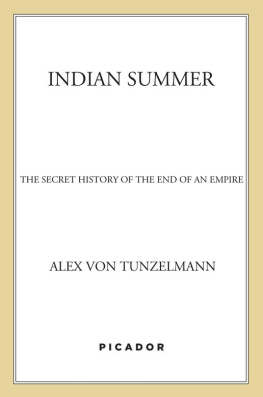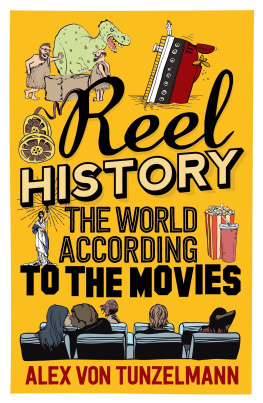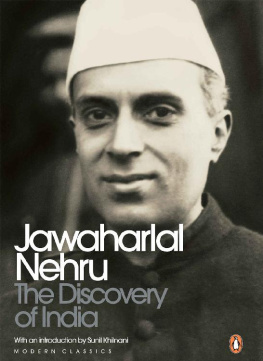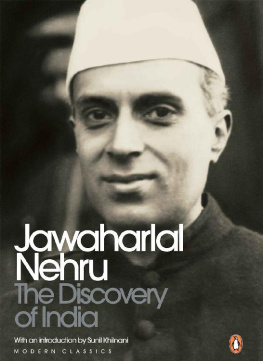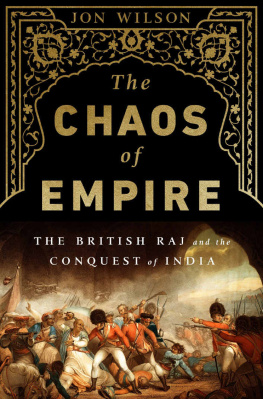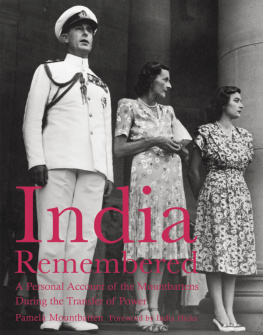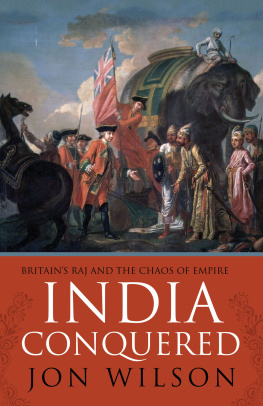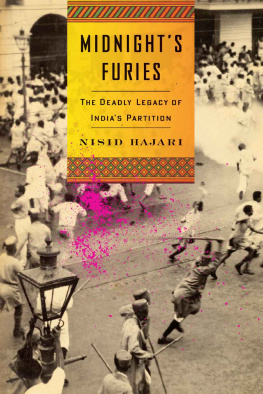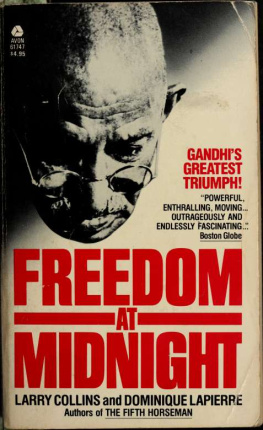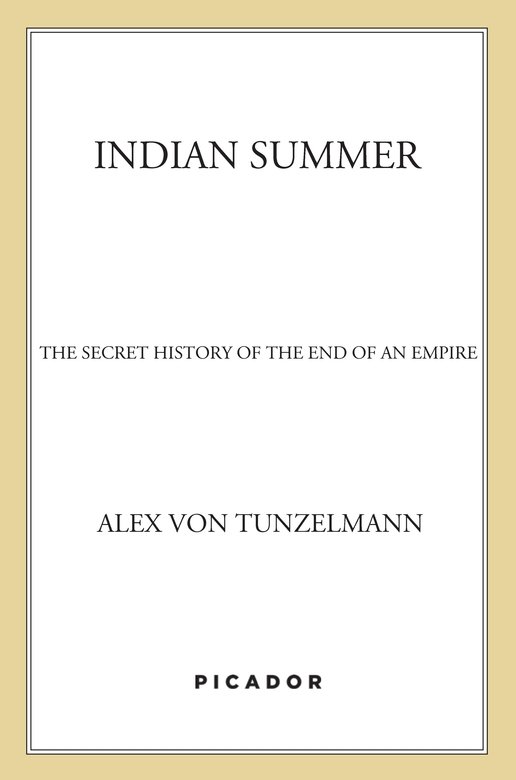In Britain, I would like to thank Her Majesty the Queen for allowing me access to the Royal Archives at Windsor, and the staff there, especially Pamela Clark; the staff at the Mountbatten Papers at Southampton University, especially Karen Robson and Chris Woolgar; the National Archives at Kew; the department of Asian & African Studies at the British Library, London; the Newspaper Library at Colindale; the Churchill Archives Centre at Churchill College, Cambridge; the Centre of South Asian Studies at Cambridge; the Modern Papers Department at the Bodleian Library, Oxford, especially Colin Harris; the School of Oriental and African Studies, London; and the London Library. In India, I would like to thank all the staff at the National Archives, and at the Nehru Memorial Museum and Library, both in New Delhi. For permissions to quote archival material, I would like to thank Her Majesty the Queen, the Trustees of the Broadlands Archive, the Churchill Archives Centre, and the Master and Fellows of Balliol College, Oxford.
During the course of writing this book, I made repeated approaches to the Mountbatten and Nehru-Gandhi families, in the hope that I would be allowed to use the private archive of letters that passed between Jawaharlal Nehru and Edwina Mountbatten. Though their responses were courteous, neither family was keen to cooperate. Only a handful of carefully selected historians has ever been allowed to look at any part of this correspondencea pity, in view of the light it would undoubtedly shed on some of the twentieth centurys most fascinating personalities and politics. Lord Mountbatten himself is said to have wanted the correspondence published. At the time of writing, the letters remain closed.
Many people were generous in giving me their advice and thoughts. I would particularly like to thank M. J. Akbar, William Dalrymple, SaulDavid, James Eddis, Nicky Goldberg, Anna and James Hatt, Lawrence James, Julia Jordan, Edward Luce, Eleanor Newbigin, Dora Napolitano, Alexander van Praag, Nicole Taylor, Eugnie von Tunzelmann and Siraj Ul-mulk. Special thanks must go to Nayantara Sahgal, for sharing with me her lucid and perceptive memories of the period and the people in this book and allowing me to see her wonderful collection of photographs and private letters. I would also like to thank Jeremy Paxman for giving me invaluable opportunities to hone my research skills and for encouraging me to write my own book. Two friends in particular have offered indispensable help: Maddie Rowe, whose expert comments have been as witty as they have been perceptive; and Adi Bloom, whose exceptional readers eye and infectious enthusiasm for all things subcontinental have been inspiring.
The events of 194748 are still highly controversial, and some of those who spoke to me have asked not to be named. They may be assured of my gratitude nonetheless. Any errors in this book are entirely my responsibility.
For the production of this book, I would like to thank my editors, Andrew Gordon, George Hodgman and Chris Bucci; also Jennifer Barth, Sarah Bowen, Kari Brownlie, Martin Bryant, Eva Diaz, Joanne Edgecombe, Lisa Fyfe, Sue Gard, Vicki Haire, Meryl Levavi, Vanessa Mobley, Emily Montjoy Belford, Lindsay Ross, Kenn Russell, Rory Scarfe, John Sterling and everyone at Simon & Schuster in London, Henry Holt in New York and McClelland & Stewart in Toronto. I am extremely grateful to Natasha Fairweather and to all at A. P. Watt, especially Philippa Donovan, Rob Kraitt, Naomi Leon and Linda Shaughnessy.
Finally, I would like to thank my parents for too many things to list here, but expressly for their unfailing support, wit, generosity, guidance and love throughout this project. It is a privilege to be able to dedicate this book to them.
Indian names and titles can be confusing for foreigners. For instance, Mohandas Karamchand Gandhi can be referred to as Mohan, Mohandas, Mohan Das, Mohandasbhai, Gandhi, Gandhiji, Mahatma or Bapu, and many further combinations are possible.
Jawaharlal Nehru was often called Pandit Nehru as a mark of his caste as a Kashmiri Pandit Brahmin; he attempted to prohibit the use of this title, but without success. Gandhi encouraged people to call him Bapu, meaning father, and was also widely known as Mahatma, a religious title meaning great soul. Mohammad Ali Jinnah, the first governor-general of Pakistan, is often called the Quaid-e-Azam, or great leader.
Hindu and Sikh princes were usually known as Raja (king) or Maharaja (great king); Muslim princes as Nawab. There are many exceptions: the Nizam of Hyderabad, Gaekwar of Baroda and Jam Sahib of Nawanagar were among those who enjoyed unique titles. The princes chief ministers were usually known as Dewan.
The suffix ji, which implies affectionate respect, is affixed liberally to names or titles by Hindi speakers; Jawaharlal Nehru could be called Jawaharlalji, Nehruji or Panditji. The suffix bhai, meaning brother, can similarly be added. Some names incorporate it, such as that of Vallabhbhai Patel; Jinnahs surname was originally Jinnahbhai. The feminine version is ben or bai . Some Hindu women, such as Kasturba Gandhi, add the suffix bai to their first name on marriage and ba when they become the matriarch of the household.
British names are equally confusing. Louis Francis Albert Victor Nicholas Mountbatten was known to his family and friends as Dickie. To everyone else he was His Serene Highness Prince Louis of Battenberg(190014), Lord Louis Mountbatten (191446), Viscount Mountbatten of Burma (194647) and eventually Earl Mountbatten of Burma (1947 onward). The second of those titles was correctly shortened to Lord Louis, and the third and fourth to Lord Mountbatten. Mountbattens personal staff persisted in addressing him as Lord Louis until the day he died.
A woman who marries a prince or the son of a peer takes her husbands title and first name, meaning that Mountbattens wife, Edwina, was generally referred to as Lady Louis. (She was never Lady Edwina; that would have denoted the daughter of a duke, marquess or earl. Edwina was only the daughter of a baron, Lord Mount Temple, and was therefore known before her marriage as the Hon. Edwina Ashley.) After 1946, Edwina would correctly have been addressed as Lady Mountbatten.
For the sake of consistency, all the people in this book have been referred to by their last name or first name, depending loosely on whether they are being viewed in a public or private context. Titles have been used occasionally for variety. Mohammad Ali Jinnahs first name has not been used, for his close friends and even his sister never called him Mohammad. They referred to him as Jinnah or, occasionally, Jin. Sikhs, all of whom bear the surname Singh if they are male and Kaur if they are female, and Muslims who bear the common surname Khan, have usually been referred to by their first names.
Places
Some place names changed after the transfer of power to make their spelling more Indian, though a non-Indian English speaker may be more likely to pronounce them correctly by referring to the old spellings (Poona is now spelled Pune, but still pronounced Poona). Many more were changed in the late 1990s and 2000s as part of a controversial Hindu nationalist movement. For instance, Bombay, named after the Portuguese Bom Bahia (Good Bay), has been renamed Mumbai after an obscure local Hindu goddess, Mumba Devi. The campaign has lately begun to propose renaming cities that presently have Muslim names with Hindu names: Allahabad would become Prayag, and Ahmedabad would become Karnavati. Because this story is set mainly in the 1940s, the names current then have been used throughout: Bangalore (present-day Bengaluru), Baroda (Vadodara), Benares (Varanasi), Calcutta (Kolkata), Cawnpore (Kanpur), Jumna (Yamuna) River, Madras (Chennai), Oudh (Awadh), Simla (Shimla), Trivandrum (Thiruvananthapuram), United Provinces (Uttar Pradesh).

